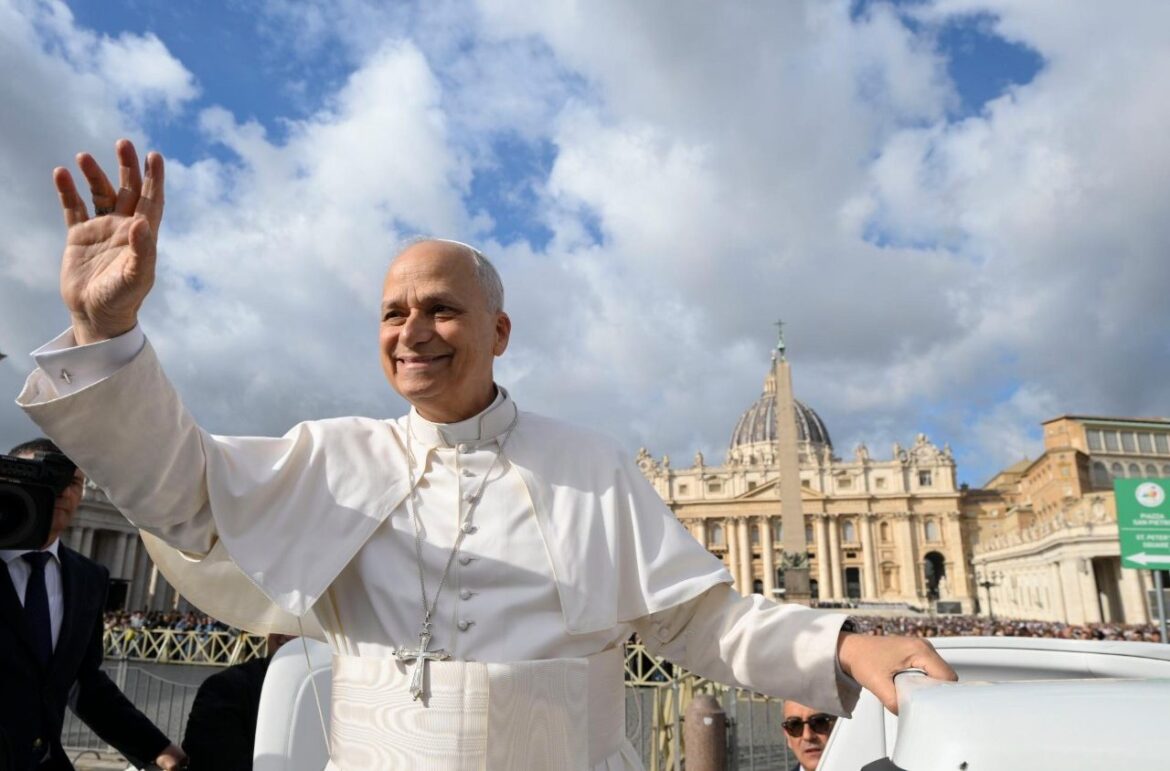
At the Jubilee Audience on Saturday, Pope Leo XIV holds up the example of Nicholas of Cusa, “a great thinker and a servant of unity”, who helps us understand that we can continue to hope even when we do not have all the answers.
By Christopher Wells
“You have reached the goal of your pilgrimage,” Pope Leo told pilgrims at Saturday’s Jubilee Audience, “but now, like the disciples of Jesus, we must learn to dwell in a new world.”
The Holy Father reminded them that “The Jubilee has made us pilgrims of hope precisely for this reason: everything must now be seen in the light of the Crucified One. It is in this hope that we are saved.”
At the same time, we must allow Jesus to “educate our gaze,” so that despite the “many contrasts and clash of many opposites” that we experience, we might learn that “love has conquered.”
‘Hope means not knowing’
Using the example of Nicholas of Cusa, Pope Leo explained that hope remains even when we do not know all the answers. He explained that, in the troubled times of the fifteenth century, Nicholas could not see the unity of the Church, nor the prospect of peace in an age where Christianity was threatened by external forces.
Nonetheless, the Pope said, Nicholas continued to hope, retaining his belief in humanity, understanding that “there are opposites that must be held together, that God is a mystery in which what is in tension finds unity.”
Nicholas, he said, “knew that he did not know, and thus came to understand reality ever more deeply.”
“What a great gift for the Church!” the Pope said. “What a call to the renewal of the heart!”
From Nicholas, he continued, the Church can learn to make space, to hold opposites together, to hope for what is not yet seen.”
A journey of hope
Pope Leo went on to apply those lessons to the Church today, faced with so many questions, questions of the young, the poor, women, and those who have been silence or condemned because they are different from the majority.”
“What a blessed time! So many questions!” the Pope said, adding, “The Church becomes an expert in humanity when she walks with humanity and carries in her heart the echo of its questions!”
Recognizing that we don’t have answers to every question, Pope Leo insisted “to hope is not to know… But we have Jesus. We follow Jesus. And so we hope for what we do not yet see.”
And so, he said, “Let us go forward as explorers into the new world of the Risen One.” The journey, he concluded, is not only for the Church, but for all humanity—a “journey of hope.”

